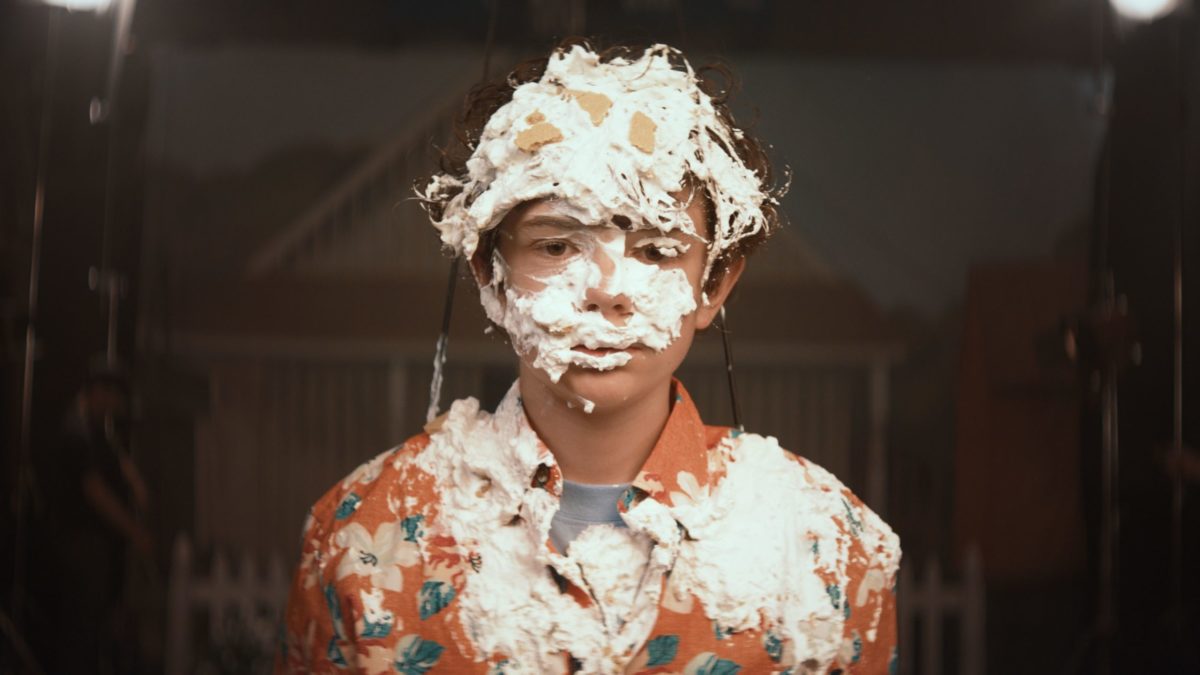Honey Boy Strikes the Emotional Heart of Every Shia LaBeouf Fan

(Amazon Prime Video)
I’ve been unaware of my fear of watching Honey Boy—the fear mainly coming from the fact that I’ve been a fan of Shia LaBeouf for most of my conscious life. (I was a kid of the ’90s who loved Disney, and thus, my appreciation was born.) My fear, while rooted in my appreciation, also came from knowing I was going to be emotional throughout watching Alma Har’el’s film (which is written by LaBeouf and is based on his love for his father, Jeffrey Craig LeBeouf).
To set the scene, the movie is loosely based on LaBeouf’s own career. While the movie starts with 12-year-old Otis (Noah Jupe) in 1995, LaBeouf’s own real-life Even Stevens catapult into stardom didn’t really happen until 2000, when I was but a 9-year-old in love with Louis Stevens.
In Honey Boy, we see two different timelines: Otis at 12 years-old and Otis at 22 years-old, played by Lucas Hedges. The easiest way of describing it is Hedges’ Otis is the Michael Bay/Transformers era of Shia LaBeouf, and Noah Jupe’s is Even Stevens, before he branched into Holes and beyond.
What hit emotionally, for me, was seeing the struggle that Otis faced. I remember watching Shia LaBeouf struggle with substance abuse, go on racist rants, be affected by PTSD, and I watched as Hollywood basically brushed him off and didn’t care. He became something of a source for a headline and nothing more, but through all of that, through Shia going to rehab and getting clean in 2017, it gave a new life to who we thought Shia LaBeouf was.
Honey Boy, while having Shia himself portraying his father (named James Lort), doesn’t sugar coat what LaBeouf’s father was like. He was aggressive, abusive, and smoked pot with his son at much too young an age, but still, it’s clear throughout Shia LaBeouf’s portrayal and writing that there is a love there.
Relationships are complicated, and so often, we see them portrayed from an outsider’s perspective, so watching Shia LaBeouf give cinematic life to his father (who was a clown at the rodeo and a soldier) is very clearly a cathartic moment for LaBeouf.
Maybe it’s because I grew up watching LaBeouf and truly kept rooting for him through his PTSD and completing his stint in rehab, but watching Honey Boy was also cathartic, in a sense, because we’re seeing the journey that he went through and how he ended up the man we see today.
Honey Boy is an extremely emotional movie in any sense, whether you know a lot about LaBeouf or not, but knowing that this was how he processed his childhood trauma, how he reflected on his time during his court-mandated rehab in 2017, makes those poignant moments pack that heavier punch. I finished Honey Boy and instantly wanted to go back, watch again, and unpack more of the film, even while crying through the last few moments of Otis exploring his connection to his father.
It’s incredible, and I’m sad that it didn’t get more recognition this award season, but it’s incredible to see LaBeouf’s willingness to share this part of his story.
Want more stories like this? Become a subscriber and support the site!
—The Mary Sue has a strict comment policy that forbids, but is not limited to, personal insults toward anyone, hate speech, and trolling.—
Have a tip we should know? tips@themarysue.com